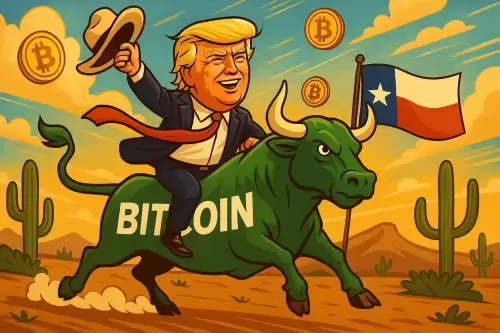Geopolitical tensions surrounding Iran and the Strait of Hormuz are roiling the crypto markets, with Bitcoin showing resilience amidst altcoin sell-offs. Here's the breakdown.

Iran, Hormuz, and Bitcoin: Navigating Geopolitical Storms in the Crypto Sea
Recent events involving Iran, the Strait of Hormuz, and Bitcoin have created a volatile mix in the financial world. Tensions are high, and the crypto market is feeling the heat. Let's dive into what's happening.
The Hormuz Factor: A Chokepoint of Concern
The Strait of Hormuz, a critical artery for global oil supply, has become a focal point of worry after Iran's parliament approved a plan to potentially close it. This follows U.S. airstrikes on Iranian nuclear sites, escalating tensions in the region. The numbers don't lie: nearly 25% of the world's oil shipments pass through this narrow waterway. Closing it would be a major disruption.
Bitcoin's Bumpy Ride: Price Drops and Resilience
News of the potential Hormuz closure sent ripples through the crypto market. Bitcoin initially dropped, along with Ethereum and XRP. Crypto liquidations surged, reflecting a significant risk-off sentiment. But here's the interesting part: Bitcoin has shown relative resilience, holding above $102,000, even as altcoins took a bigger hit.
Altcoins in the Crosshairs: A Flight to Safety?
While Bitcoin has held its ground relatively well, altcoins like Ethereum, Cardano, and AI-focused tokens have suffered more significant losses. This suggests a flight to safety, with investors pulling out of riskier assets amid the geopolitical uncertainty. It’s a classic case of “when the going gets tough, the tough buy Bitcoin (or at least don't sell it as much).”
Why Bitcoin Still Has Fans: Digital Gold in a Chaotic World
Despite the price drops, some investors remain optimistic about Bitcoin. They see it as a safe-haven asset, a form of “digital gold” that can hold its value during turbulent times. Its limited supply and independence from governments make it an attractive option for those seeking to protect their wealth. This perspective is backed up by Bitcoin's comparatively smaller price decrease, indicating growing stability and acceptance.
The Bigger Picture: Macroeconomic Mayhem?
The potential closure of the Strait of Hormuz has broader macroeconomic implications. Oil prices could surge, fueling inflation and potentially delaying central bank rate cuts. Higher energy costs would impact consumers and businesses alike. Investors might flock to traditional safe-havens like US Treasuries and the dollar, further draining capital from risk assets like crypto.
Navigating the Storm: Key Indicators to Watch
Traders should keep a close eye on several key developments: Iran’s final decision on the Strait of Hormuz, the potential for further military escalation, and movements in oil prices and the US Dollar Index. These factors will likely continue to influence the crypto market in the coming days and weeks.
Final Thoughts: Buckle Up, Buttercup!
The situation surrounding Iran, the Strait of Hormuz, and Bitcoin is complex and evolving. Geopolitical tensions are creating volatility in the crypto market, but Bitcoin's resilience offers a glimmer of hope for those who believe in its long-term potential. So, buckle up, buttercup! It's going to be a wild ride. And maybe, just maybe, Bitcoin will emerge as the unlikely victor in this high-stakes game.














































































